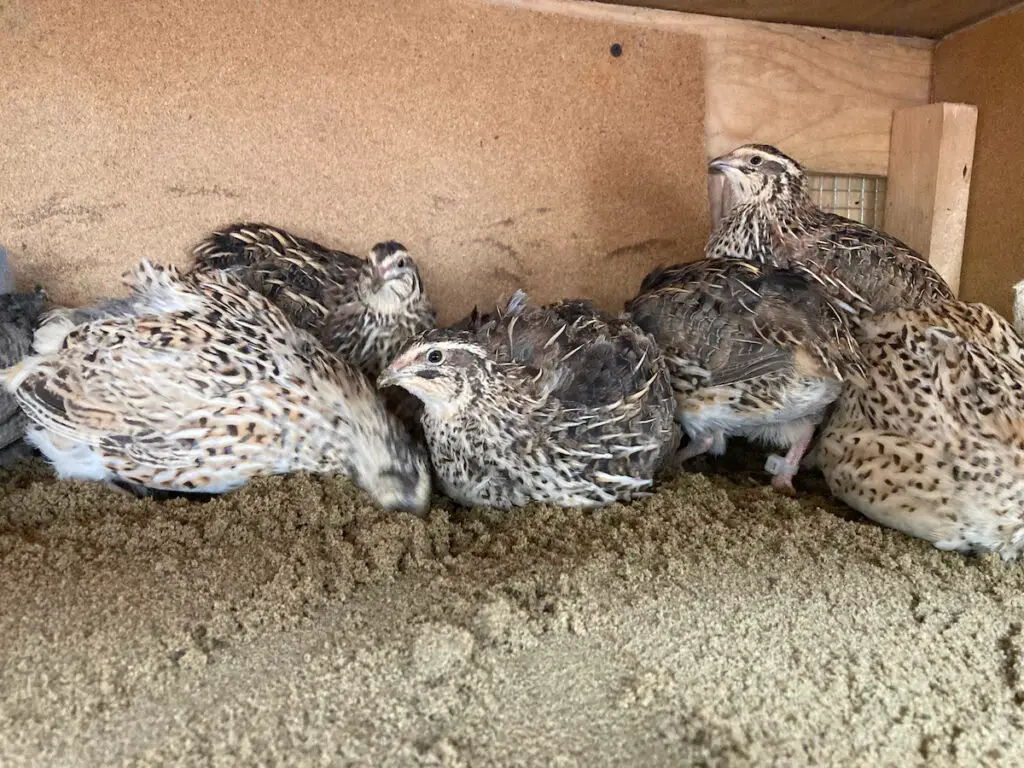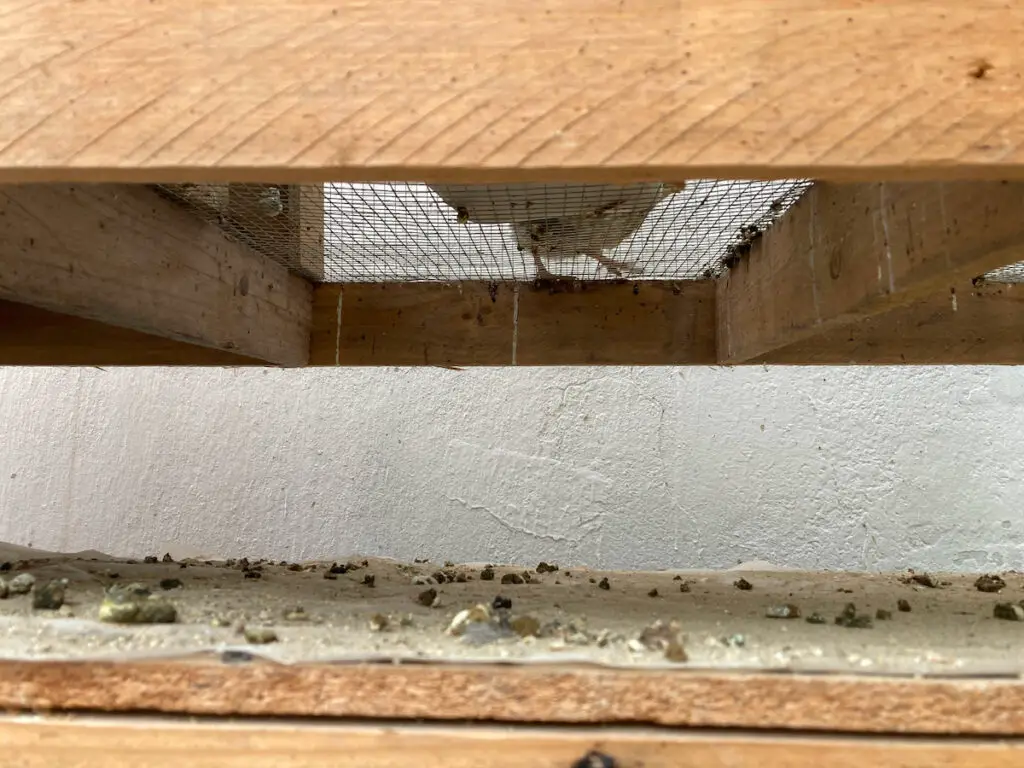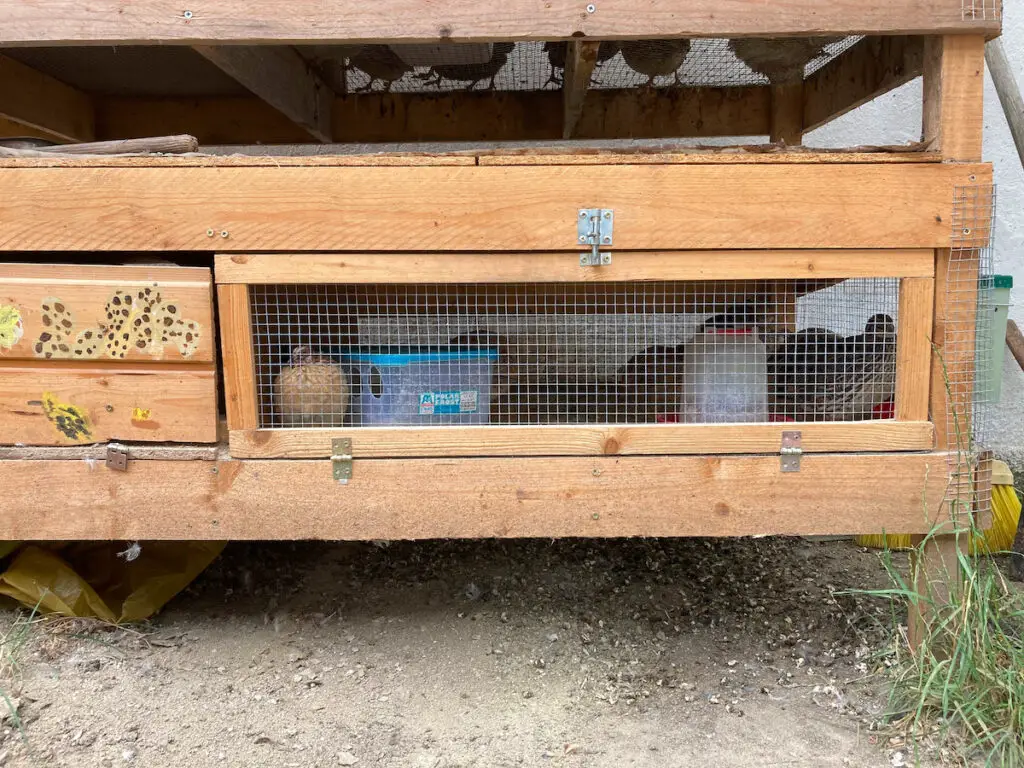Keeping quail at home can give you a constant supply of eggs and meat. As an aspiring quail keeper, you may be wondering if quail smell. If you’re new to quail keeping, you may be surprised that your quail have a distinct smell and wonder if this is normal.
As a quail keeper, I had this question before starting, and I have found ways to keep the smell to a minimum.
Quail have a distinct smell due to the ammonia in their droppings, which can be pretty strong and disturbing. The scent can be managed by cleaning out their habitat regularly and by proper waste management.
Smell and noise are two of the most common questions that come up when one wants to raise quail. If you’re wondering if they are too noisy, read this post about everything to know about quail noise.
Learn how to raise your own quail and have an unlimited supply of eggs and meat.
What makes quail smell?
If you ever pick up a quail and smell it, you won’t feel any distinct smell. Their skin and their feathers are entirely odorless.
However, when you approach a quail cage, you can often feel a distinct, unpleasant smell. This smell comes from their droppings, which contain a high ammonia concentration. It’s even higher than chicken droppings.
The more quail you keep, the more you can feel the smell. The truth is that quail poop a lot! I collect about 60-70lbs (25-35kg) of quail poop from my quail every two weeks.

If the droppings can dry out, they will be almost entirely odorless.
The wetter the quail poop, the more pungent the smell. Interestingly, baby quail poop smells worse than adult quail poop because it is usually runnier. Their poop gets less smelly as they grow up.
The good news is that quail poop dries relatively fast, and there are some tricks to make it dry even faster.
If quail droppings can’t dry, they remain smelly, and if dry droppings come in contact with water (spillage or rain), they will start to smell bad again.
I noticed that my quail are less likely to smell on dry days/weeks than wet ones. Some rain and a slight breeze can immediately cause the odor to spread. This can be very noticeable on warm, humid Summer days where I live.
It can be unpleasant depending on how far you keep your birds from your home.
Regular cleaning of the quail cage and waste management is essential to control the smell.
How to eliminate quail smell
Regular cleaning
Regular cleaning is essential to control the odor, especially if you keep your quail indoors.
If your quail have an enclosed area in an outdoor cage, this is also where smell can build up.
My quail have a dedicated sand pit in their cage, where they can go for a dust bath. This is also where they like laying eggs and retreating here if the weather is terrible.
Keeping the sand fresh, and removing poop from the sand regularly, is essential so the ammonia doesn’t build up. Since the birds kick out a lot of sand with their dust bath, you can feel there is a need to top it up after a few weeks.

Cage size
Naturally, the more birds you keep in a given amount of space, the higher the concentration of droppings is going to be, and the more they will smell.
An aviary, where the birds can roam free and have a lot of space, is ideal for smell control, especially if you have a deep litter under the birds.
Cage location
Quail kept indoors is safe from getting wet from rain, but quail kept outdoors are more exposed to the elements.
The more you can protect the cage and its surroundings from getting in contact with water, the more the droppings are kept dry, and the less your birds will smell.
Deep litter
If you have access to pine shavings, you can place a new layer of shavings in your quail cage every few days.
The shavings help wick the moisture from the droppings, and the upper layers also keep the smell of the lower ones down. An added benefit of this method is that composting starts while still in the cage.
This method is feasible with a small number of birds in a manageable size pen or in an aviary setting, where you can cover the entire floor in shavings.
The downside of deep litter is that it can get quite costly.
Wire bottom cage

A cage with a hardware cloth bottom allows the droppings to fall through the floor and into a tray or on the ground.
This is ideal for many quail keepers.
If you keep your birds indoors, you can pour a thin layer of pine shavings on the poop tray. It wicks away the moisture and thus controls the smell. You must still empty the tray every few days and not let too much poop build up.
If you keep your birds outdoors, you can let the droppings fall on the ground. If you have multiple floors, as I do, you can let the poop fall on the top of the lower levels and clean it with a brush regularly.
If your quail cage is far enough from your house, you can let the droppings compost under the cage, but if it’s close to your home, it’s best to move the waste to a dedicated compost bin.
I go into detail about quail housing in this article.

Waterer location
Keep your water containers elevated off the ground so your quail don’t poop in it and don’t spill the water.
Poultry drinking cups work best for me because they only dispense water when the quail go to drink.
I always had problems with the droppings getting wet under the mason jar because a few drops fell on the poop every time the quail went to drink. This isn’t an issue with the cup.
Happy Quailing!

